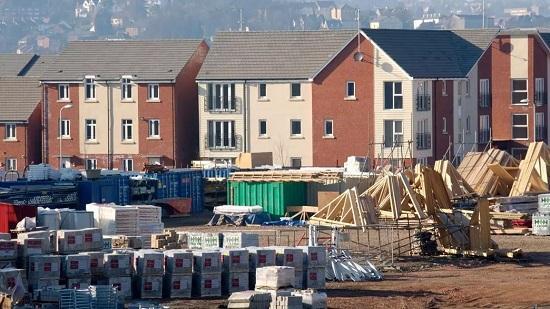Levelling Up From The Centre - Six Tests For A Government Serious About Reducing Regional Inequalities
16th September 2023

A new report from the Institute for Government.
A new central government approach is needed to reduce regional inequality - Central government is not set up to deliver this government's promise - or Labour's plans - to reduce regional inequality.
This report sets out how central government has undermined past attempts to reduce regional inequalities - and then sets out six tests this or future governments must meet to ensure that ‘levelling up' - or Labour's pledge to deliver "real life levelling up" - has the best chance of succeeding.
Repeated central government failures have thwarted efforts to reduce regional inequality, including frequent changes in ministers - since 1990 there have been 17 secretaries or ministers of state responsible for regional governance – policy direction and institutions, a lack of clarity on policy aims, and a failure to co-ordinate across departments and work well with devolved and local governments.
The report warns that these mistakes are being repeated. Although the Levelling Up White Paper recognised many of these challenges, and took some welcome steps like announcing 12 missions, the agenda has stalled because Rishi Sunak is failing its first test of needing to "ruthlessly prioritise" levelling up and demonstrate "sustained leadership".
The IfG report also says that new shadow levelling up secretary Angela Rayner needs to do more to define Labour's "opportunity for all" vision or risk it being an "empty slogan" – which is how Labour has dismissed the government's "levelling up" plan – and develop a set of cross-government structures to reduce regional inequalities.
There is political consensus behind tackling regional inequalities and both parties have rightly highlighted the need for further devolution to drive change, but central government has often failed to play its part. The report’s six tests measure whether lofty rhetoric is being converted into the practical steps and political commitment that might finally move the dial.
Regional inequality in the UK is, on key measures like productivity
and healthy life expectancy, as marked as it has ever been. This
is despite successive attempts by UK governments since at least
1990 to reduce large economic and social inequalities between
London and the South East and the rest of the UK – including
Michael Heseltine’s ‘city challenge’ in the 1990s, various New
Labour agendas such as ‘neighbourhood renewal’, George
Osborne’s northern powerhouse and, most recently, levelling up
as championed by Boris Johnson. However, none has managed to
make a serious dent in regional inequality.
The failure is not due to a lack of political consensus. Both Labour and Conservative governments have recognised that growing regional inequalities between different parts of the UK is an unacceptable problem that requires attention. The lack of progress by successive governments has instead been a failure of political attention, and of policy. Governments have promised but they have not delivered.
Addressing regional inequalities will require every part, and level, of government to play its part. As past Institute for Government work has highlighted, successfully
addressing regional inequality is heavily dependent on the devolved governments
in Scotland, Wales and Northern Ireland, and local government within England. Even as one of the most centralised advanced economies, some important policy levers sit with these subnational governments, whether housing and economic development in Scotland or local transport powers in the West Midlands. Further devolution of powers may help to overcome some of the problems we identify, such as a lack of co-ordination and excessive policy churn.
Central government should therefore not be under the illusion that it can tackle regional inequalities on its own. But to deliver the change that both the Conservatives and Labour have set out in their plans, the government at Westminster must fix the problems that have thwarted past attempts. Many of these problems have been caused by the way central government makes and delivers policy, including excessive policy churn, a lack of clarity on aims and poor co-ordination. A nationwide agenda, as will be needed, will require an engaged and effective central government. This report therefore focuses on what a government, current or future, needs to do to make such a plan work.
Levelling up from the centre
Pdf 53 Pages
